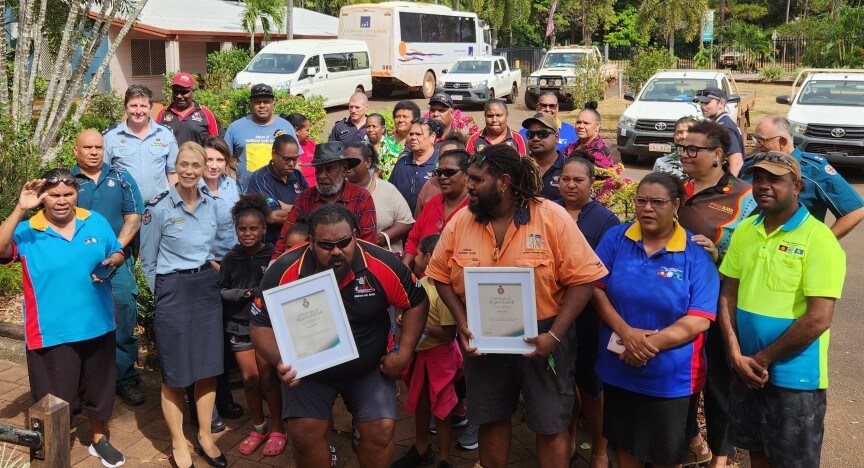
On 6 January this year the Queensland Ambulance Service (QAS) received a Triple Zero (000) call to respond to a reported drowning involving a one-year-old girl found unresponsive in the water at Somerset Bay, more than 1000km north of Cairns.
A family member had pulled the girl from the water and got her to shore where Northern Peninsula Area Regional Council (NPARC) Apudthama Indigenous Ranger, Trevor Nona and Ipima Ikaya Aboriginal Corporation RNTBC (IIAC) Senior Ranger Frankie Cook, were nearby on the beach.
Frankie and Trevor were CPR trained and leapt to action to save the young girl’s life, CPR for 8-10 minutes until the girl began to cough and show signs of consciousness.
Emergency Medical Dispatcher (EMD) Lisa Zolnowski provided instructions and support over the phone to the two while help was being arranged.
About an hour away at Bamaga Ambulance Station, the closest station to Somerset Bay paramedic Karl Visser was on his way with lights and sirens, while Horn Island-based Flight Critical Care Paramedic Gerard O’Brien was in a Rescue 700 to help.
Once on scene, Karl continued resuscitation until the Rescue 700 landed and Gerard was able to stabilise the girl before airlifting her to Thursday Island Hospital.
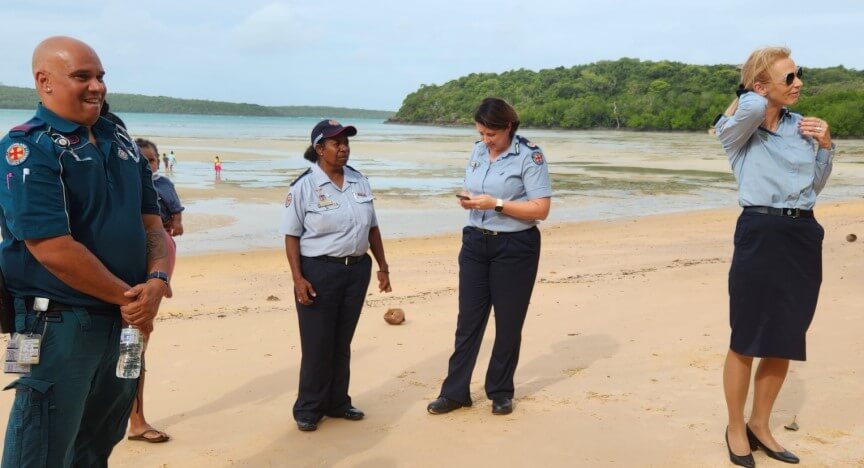
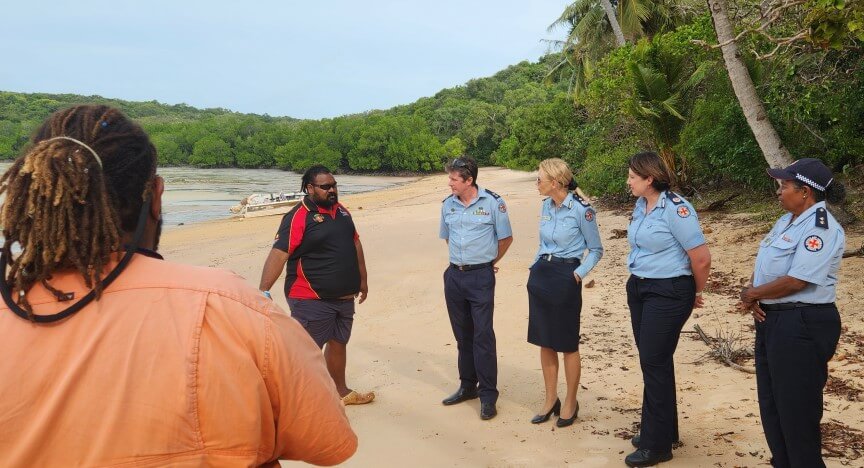
On 4 July, QAS Deputy Commissioner Far Northern Region Kari Arbouin and Assistant Commissioner Brina Keating travelled to Bamaga to present both rangers with certificates of appreciation for their life-saving care.
QAS Bamaga Officer in Charge Adam Marston said without Frankie and Trevor’s intervention said the girl’s chance of survival would have been low.
“Given the remoteness of Cape York, an ambulance can often be quite a distance from a scene," Adam said.
“Frankie and Trevor’s actions undoubtedly saved her life.”
“The two rangers had only just done their advanced first aid refresher in the few weeks prior to the incident and both credited this training as giving them the ability to apply their skills confidently and at a high level.
"These skills were witnessed by everyone on scene and it made a huge impression on the community.
”This case reinforces the importance of early bystander CPR within remote communities, with several traditional owners and elders at the ceremony expressing their desire for QAS to deliver more CPR and first aid to the region to increase community resilience,” Adam said.
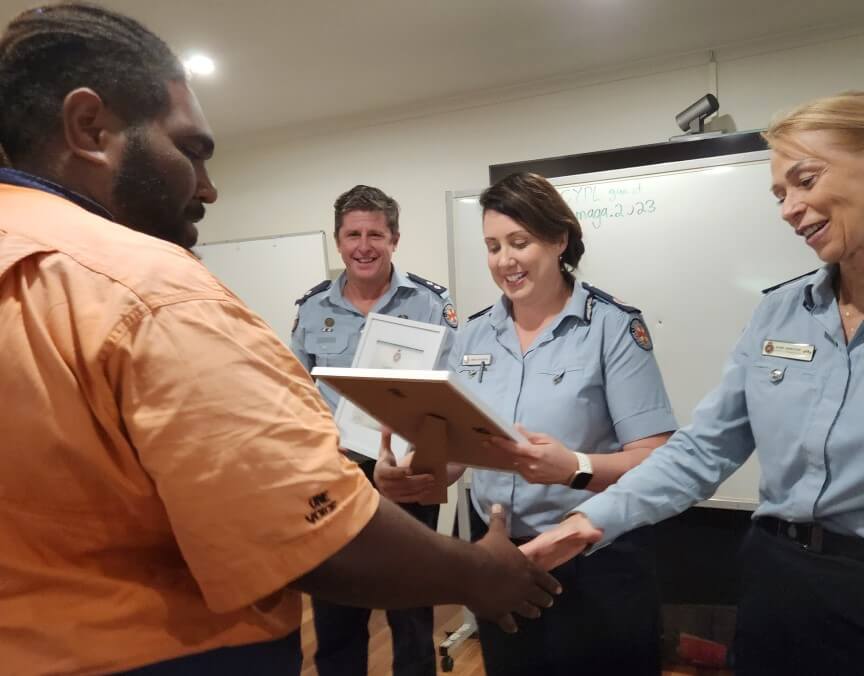
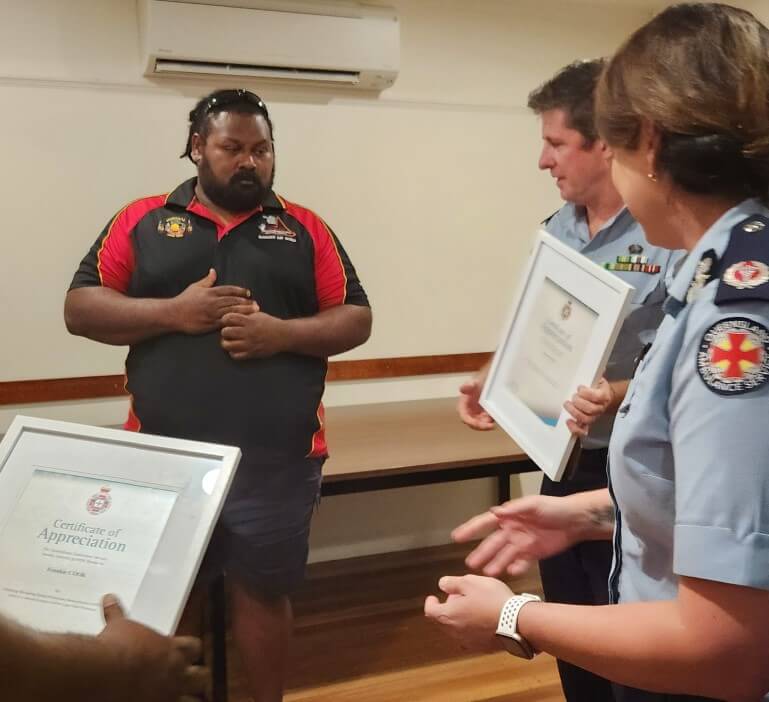
NPARC Chief Executive Officer Kate Gallaway commended the swift actions by the two CPR and First Aid-trained rangers.
“In this remote region, we all need to be vigilant in skills training and especially advanced lifesaving techniques – it is the difference between life and death up here,” Ms Gallaway said.
“Council is extremely proud of the local rangers, for their dedication and training, and the precious life saved for a thankful local family.”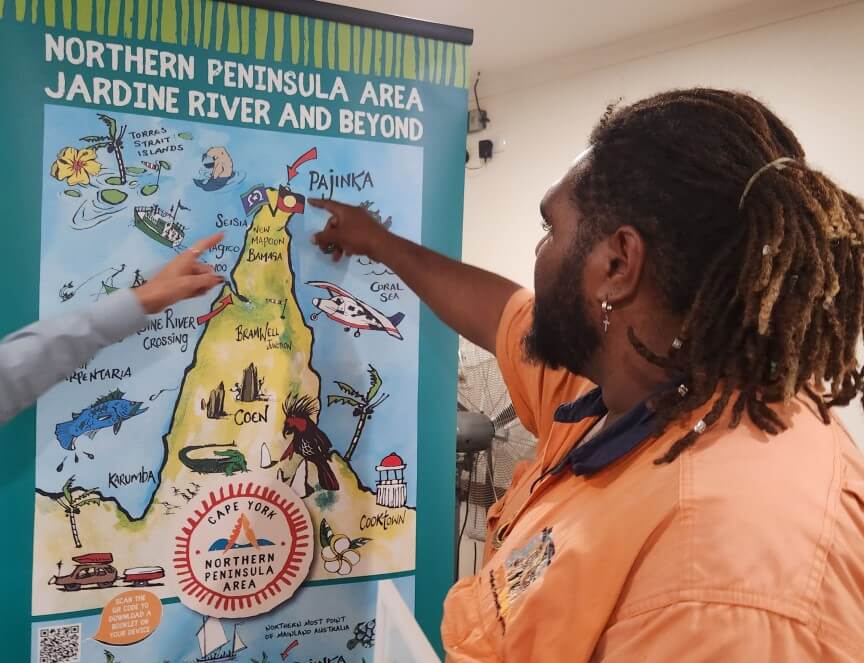
Both Frankie and Trevor are traditional owners of Gudang Yadhaykenu and this recognition is well deserved and well earned, said IIAC Operations Manager Louisa Taylor Ahmat.
“Both these men are role models and true heroes and it takes real courage to do what they did.
Assistant Commissioner Keating acknowledged just how remote these communities in the Torres Strait are, and why learning CPR and First Aid skills was so important.
“When tragedy strikes, it is crucial people in our community know what to do in emergencies,” Brina said.
“We are extremely proud to present Frankie and Trevor with these certificates – they should feel a deep sense of pride knowing their early and skilled intervention has resulted in saving this young girl’s life – a great outcome for her and her family.”